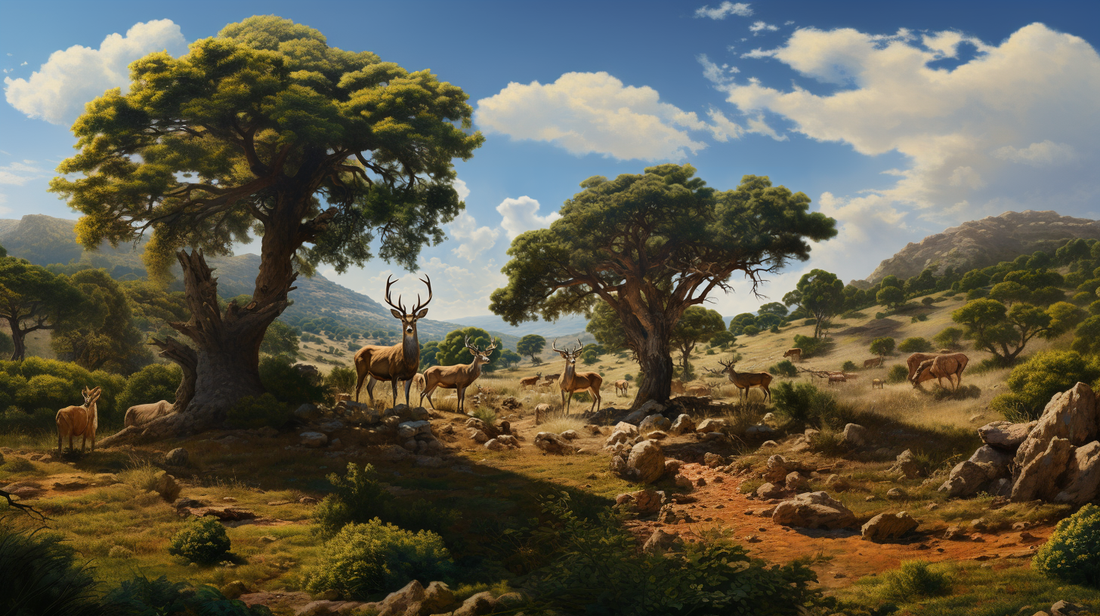
A Glimpse Into Pebble Stone Alentejo Farm Ecosystem
Compartir
Biodiversity and Sustainable Management: A Glimpse Into Our Alentejo Farm Ecosystem
Nestled in the serene landscapes of Alentejo, Portugal, our 1,000-hectare hunting farm isn't just a haven for outdoor enthusiasts; it's a living, breathing ecosystem teeming with biodiversity. But managing such a diverse environment responsibly requires a dedicated, multifaceted approach. In this blog, we delve into how we are promoting the growth of feeding grounds, introducing new DNA into the gene pool, and ensuring the well-being of our resident fauna.
Preserving the Ecosystem Through Field Separation
One of our primary goals is to maintain and enhance the natural ecosystem. To achieve this, we have divided the expansive fields into specialized zones. These zones serve as feeding grounds, each designed to cater to the dietary needs and habits of specific animal species such as Wild Boar, Red Deer, and European Rabbit, among others. By optimizing their natural habitat, we encourage not only their survival but also their thriving.
Introducing New DNA into the Gene Pool
A stable and diverse gene pool is critical for the health and longevity of any wildlife population. To this end, we've implemented programs aimed at carefully introducing new genetic material into the resident animal communities. This genetic infusion contributes to more robust and resilient animal populations, fortifying them against potential diseases and promoting genetic diversity, an essential factor for a flourishing ecosystem.
Proper Animal Care and Ethical Practices
Animal welfare stands at the forefront of our operations. We adhere to strict guidelines to ensure that each species receives the proper care it deserves. This includes regular health check-ups and ethical handling practices, all aimed at maintaining a stress-free environment for the animals.
Moreover, our ethical hunting practices align with conservation goals, ensuring that population sizes are managed sustainably. We work closely with local authorities and conservationists to make informed decisions that are conducive to long-term ecological balance.
Our commitment to sustainability, biodiversity, and ethical management practices plays a crucial role in the stewardship of this incredible Alentejo ecosystem. The separation of feeding grounds, introduction of new genetic material, and focus on proper animal care collectively contribute to an environment where both wildlife and people can coexist harmoniously.
As we continue to explore new methods and technologies for ecosystem management, our aim remains steadfast: to create an experience that is not only adventurous but also educational and ethical, offering guests an enriching journey into the world of sustainable wildlife management.
